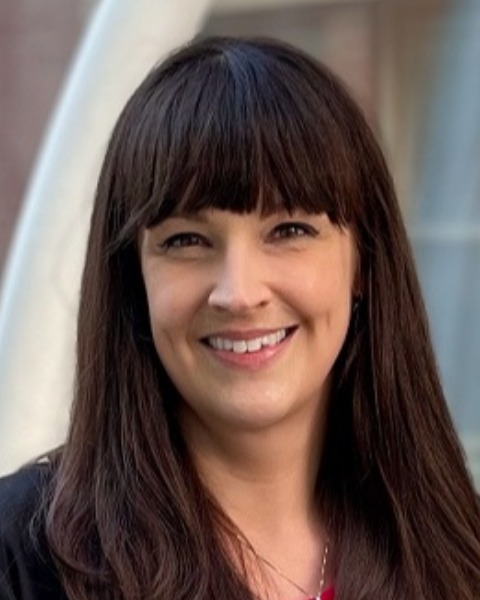EP
MODERATED POSTER SESSION #5
MP-5 - REFERRAL RATES OF CASCADE SCREENING AMONG FIRST DEGREE RELATIVES OF SUDDEN CARDIAC DEATH VICTIMS IN ONTARIO
Saturday, October 26, 2024
12:21 PM - 12:28 PM PT
Room: Theatre 1 (Exhibit Hall)
Background: Sudden cardiac death (SCD) affects an estimated 35,000 Canadians annually. The causes of SCD vary with age; in younger individuals, most deaths are caused by potentially heritable cardiac diseases. This means that first-degree relatives (FDRs) of SCD victims may have a 50% risk of being affected and should be referred to cardiology and/or genetics for cardiac assessment and consideration of genetic testing (“cascade screening”). In Ontario, knowledge is currently lacking on how many FDRs of SCD victims receive cascade screening and the reason(s) for not obtaining screening.
METHODS AND RESULTS: In collaboration with the Office of the Chief Coroner of Ontario, we emailed a link to a web-based survey with both closed and open-ended questions, to FDRs of individuals who died from heritable SCD in 2022. Out of 76 eligible FDRs, 44 (57.9%) responded. Of the 44 responders, 34 agreed to participate. Of the 10 who opted out, the reasons specified were: overwhelming grief (20%, 2/10), hadn’t seen a specialist yet (5/10, 50%); busy with family (10%, 1/10), issues completing the survey (10%, 1/10) and 1 had completed cascade screening but did not fill in the survey. Of the 34 who agreed to participate, 30 completed the web-survey between January 2023 to April 2024. The average age of participants was 41.0 ± 12.1 and 85.2% (23/27) identified as women. Just under half (43.3%, 13/30) were parents, 20% (6/30) were children, 16.7% (5/30) were siblings and 10% (3/30) were spouses of the SCD victims. Three quarters (22/29) saw a cardiologist after the death of their relative and of those, 22.7% (5/22) were diagnosed with a heritable cardiac disease. Fewer than half (46.2%, 12/26) saw a genetic counsellor and only 23.1% (6/26) had genetic testing performed. Reported reasons for not accessing cascade screening were: (1) hard to access the required specialist (16.7%, 1/6), (2) the referral was not sent by the family doctor (16.7%, 1/6), (3) lack of time (16.7%, 1/6), (4) still waiting to be seen (16.7%, 1/6) and (5) no one suggested it.
Conclusion: The majority of FDRs reported seeing a cardiologist after the death of their relative, however less than half saw a genetic counsellor and even fewer had genetic testing. More research is needed to better understand the barriers and facilitators for FDRs to access cascade screening.
METHODS AND RESULTS: In collaboration with the Office of the Chief Coroner of Ontario, we emailed a link to a web-based survey with both closed and open-ended questions, to FDRs of individuals who died from heritable SCD in 2022. Out of 76 eligible FDRs, 44 (57.9%) responded. Of the 44 responders, 34 agreed to participate. Of the 10 who opted out, the reasons specified were: overwhelming grief (20%, 2/10), hadn’t seen a specialist yet (5/10, 50%); busy with family (10%, 1/10), issues completing the survey (10%, 1/10) and 1 had completed cascade screening but did not fill in the survey. Of the 34 who agreed to participate, 30 completed the web-survey between January 2023 to April 2024. The average age of participants was 41.0 ± 12.1 and 85.2% (23/27) identified as women. Just under half (43.3%, 13/30) were parents, 20% (6/30) were children, 16.7% (5/30) were siblings and 10% (3/30) were spouses of the SCD victims. Three quarters (22/29) saw a cardiologist after the death of their relative and of those, 22.7% (5/22) were diagnosed with a heritable cardiac disease. Fewer than half (46.2%, 12/26) saw a genetic counsellor and only 23.1% (6/26) had genetic testing performed. Reported reasons for not accessing cascade screening were: (1) hard to access the required specialist (16.7%, 1/6), (2) the referral was not sent by the family doctor (16.7%, 1/6), (3) lack of time (16.7%, 1/6), (4) still waiting to be seen (16.7%, 1/6) and (5) no one suggested it.
Conclusion: The majority of FDRs reported seeing a cardiologist after the death of their relative, however less than half saw a genetic counsellor and even fewer had genetic testing. More research is needed to better understand the barriers and facilitators for FDRs to access cascade screening.
Disclosure(s):
Katherine S. Allan, PhD MASc: No financial relationships to disclose

Katherine S. Allan, PhD, MASc (she/her/hers)
Adjunct Scientist
St. Michael's Hospital
St. Michael's Hospital
